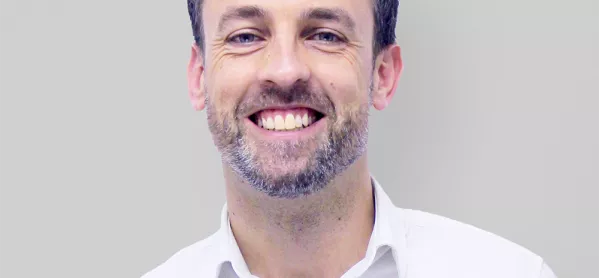
Warning over ‘knee jerk’ response to fix ECF

A leader of an Early Career Framework (ECF) provider has warned against a “fundamental overhaul” of the reforms after concerns over an unmanageable workload were highlighted in an evaluation of the programme.
Speaking exclusively to Tes, Tom Rees, executive director for programmes at one of the six lead ECF providers, Ambition Institute, said he did not think there would be an “endpoint” for the programme’s implementation and that it would “always be looking to improve”.
Research released by the Department for Education last month reflected the initial feelings in the sector in the first term of its rollout.
- ECF: Most ECF tutors and mentors say workload is ‘too much’
- DfE: More ‘flexibility’ on ECF as mentors dip
- Bauckham: Early career reform ‘tweaks’ will ‘sort teething problems’
- ECF: Teething problems or is change certain?
It found the majority of people involved in delivering the ECF for new teachers felt that the workload for teachers and mentors was “too much”.
But despite these initial concerns, Mr Rees said Ambition was ensuring that it did not “rush or knee-jerk into creating more solutions” that might add “further complexities to delivery”.
He said it would be a mistake one year in to “centrally or nationally” make “any more prescription like that”.
With the first full year of delivery of the ECF coming to a close, Mr Rees said it was important to finish and “consolidate” lessons learned to “go into year two”.
He told Tes not to think there should be a “fundamental overhaul of the programme at this stage”.
In March, schools minister Robin Walker wrote to schools to promise the DfE was “making improvements” to the framework in areas it had heard were “causing some difficulties”.
Mr Walker said the DfE was also “exploring other ways” to “encourage appropriate flexibility” in the delivery of the programmes.
Mr Rees said he agrees with the suggestions in the letter, but warned that while flexibility was important so the framework could fit “around context and school”, it was essential that the ECF should not lose its “core fidelity and principles” in the process.
Instead, Mr Rees said providers should “allow the schools and the trusts who are in delivery” to “build on what they’ve learned this year and adapt it moving forward”.
Mr Rees added that there won’t “ever be an endpoint” and predicts an ”ongoing conversation as part of implementation”.
Local decision making
“I think it’s about saying what are the areas of the programme that make sense for us to allow and encourage more local decision making,” he said.
He added that some schools and trusts are very clear that everyone will have a subject-specific mentor, while others decide not to, focusing instead primarily on mentoring ability.
With these aspects of the framework, Mr Rees said it doesn’t make sense for the DfE or Ambition “to insist on those things in the system”, instead highlighting them as “school-level delivery partner decisions”.
He said: “We’re best off letting them come to terms with it and trusting the expertise in the system”.
More to come on Send and early years
Mr Rees said some of the delivery partners have chosen to run special educational needs and disabilities or early year-specific early career teacher cohorts this year.
He added that the advantage of these cohorts is they are led by tutors who are specifically from those backgrounds.
This means that “in their delivery, they’re more naturally able to draw on examples within their facilitation of the programme”.
Mr Rees said Ambition would be evaluating the effectiveness of this, “to help them make good choices about how much of that they want to do next year”.
Mr Rees also said that Ambition was continuing to build more exemplification in areas like early years and Send through study materials.
He added that the provider plans to offer schools a “greater selection” of self-study materials to choose from.
Subject-specific focus on maths and physics
Mr Rees said Ambition is currently working on subject-specific ECF cohorts, looking particularly at maths and physics, as they are hearing from trusts that they would welcome a greater focus on these “shortage areas”.
When asked if he thinks the ECF will shift in response to changes in subject shortages, Mr Rees said that he didn’t think it would shift “on an annual basis” but that it would be important to respond to the “market and its demands”.
You need a Tes subscription to read this article
Subscribe now to read this article and get other subscriber-only content:
- Unlimited access to all Tes magazine content
- Exclusive subscriber-only stories
- Award-winning email newsletters
- Unlimited access to all Tes magazine content
- Exclusive subscriber-only stories
- Award-winning email newsletters
You need a subscription to read this article
Subscribe now to read this article and get other subscriber-only content, including:
- Unlimited access to all Tes magazine content
- Exclusive subscriber-only stories
- Award-winning email newsletters
- Unlimited access to all Tes magazine content
- Exclusive subscriber-only stories
- Award-winning email newsletters
topics in this article



